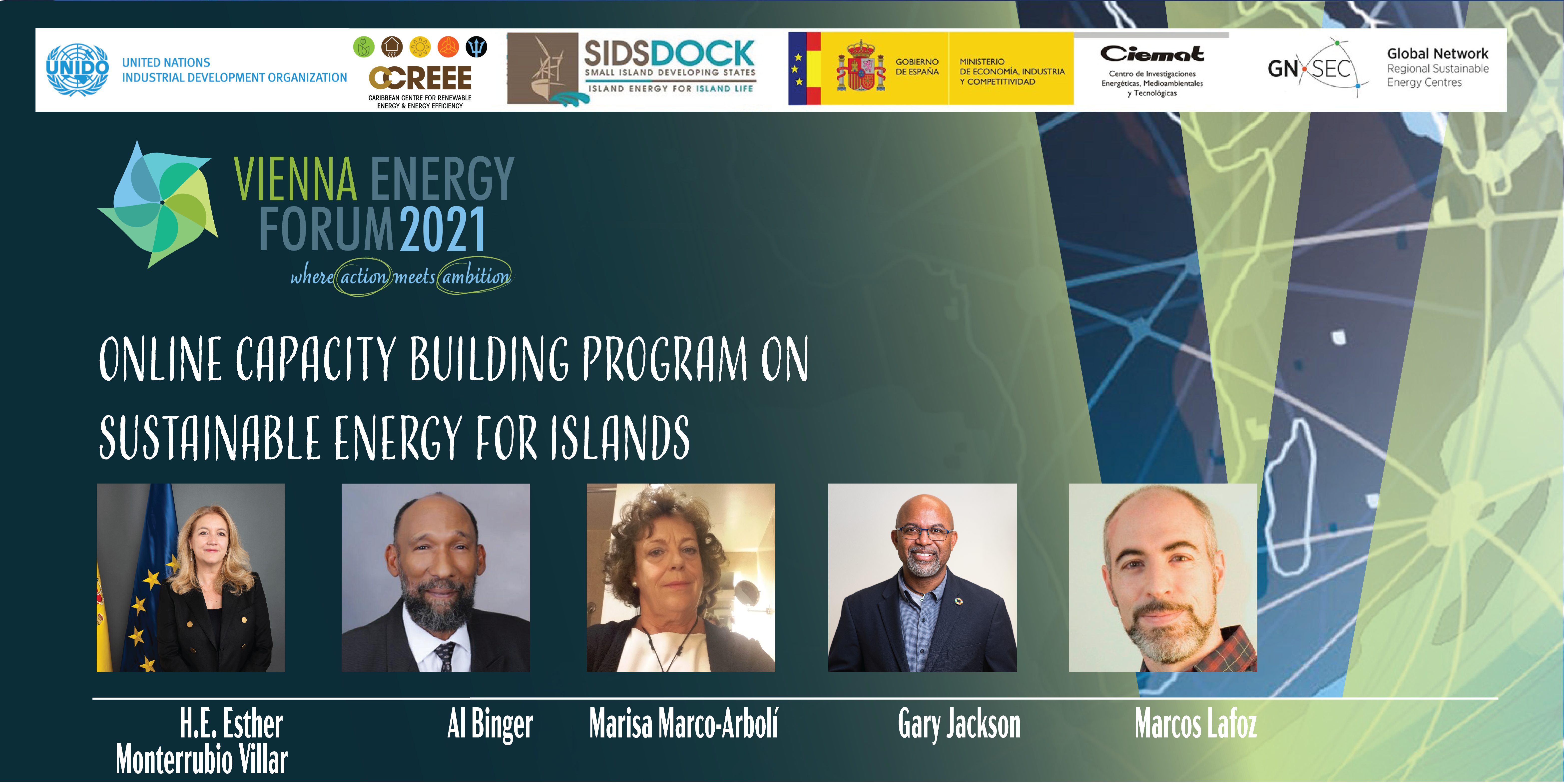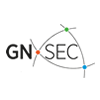The United Nations Industrial Development Organisation (UNIDO), the Small Island Sustainable Energy and Climate Resilience Organisation (SIDS DOCK) and the Spanish Centre for Research in Energy, Environment and Technology (CIEMAT) are jointly organising the side event
"Online Capacity Building Program on Sustainable Energy Solutions for Islands". During the event, the panellists will provide an introduction to the program and discuss the role of digital infrastructure and skills development for the energy and climate transition in islands.
|
Times
|
Activities
|
Responsibility
|
|
17h00 – 18h00: Panel Discussion
|
|
17h00
|
1. Introduction of the panelists and presentation of the objective of the side event
|
Mr. Martin Lugmayr, Coordinator of the GN-SEC
|
|
17h05
|
2. Welcome remarks. The role of the Spanish cooperation to support insular contexts
|
H.E. Esther Monterrubio Villar, ambassador permanent representative to the International Organisations in Vienna
|
|
17h15
|
3. Short speech by SIDSDOCK. Description of the SIDS context
|
Mr. Al Binger, Secretary General of SIDS DOCK
|
|
17h20
|
4. Short speech by CIEMAT. Conceptualization of the capacity building program
|
Mrs. Marisa Marco, Head of Knowledge Management and Training Division at CIEMAT
|
|
17h25
|
5. Short speech by CIEMAT. Considerations for the program design
|
Mr. Marcos Lafoz, Head of the Unit of Electric Power Systems at CIEMAT
|
|
17h30
|
6. Short speech by CCREEE (Caribbean Centre for Renewable Energy and Energy Efficiency). Importance of capacity building in renewable energy and energy efficiency means in insular contexts
|
Ms. Cherri-Ann Farquharson, Knowledge Management and Capacity Development Expert of the Caribbean Centre for Renewable Energy and Efficiency
|
|
17h35
|
7. Round of questions between the moderator and the panelists
|
Mr. Martin Lugmayr, Coordinator of the GN-SEC
|
|
17h50
|
8. Open questions to the public and concluding remarks
|
Mr. Martin Lugmayr, Coordinator of the GN-SEC
|

Challenges addressed by the program:
Global shocks, such as the COVID-19 crisis and climate change, have underlined once again the urgent need of Small Island Developing States (SIDS) in Africa, Caribbean, Indian Ocean and the Pacific to diversify their economies and to become more independent. To decouple from expensive fossil fuel imports, most of them have set ambitious goals regarding renewable energy and energy efficiency. Over the next decade, a rapid shift towards decentralised, flexible and integrated island power and electric mobility systems is needed. This requires leapfrogging to new technologies, solutions and business models.
The magnitude of change will require major investment in infrastructure and human capacities. A critical mass of young certified energy professionals will to need drive and sustain the transition in the long-term. However, currently many young islanders have only limited access to qualification and certification programs or cannot afford to study abroad. Brain drain is another major issue connected to the latter. Locally, many SIDS lack of training institutions and quality programs, which respond to the particular needs and priorities of islands. Recently, there are efforts to establish regional qualification and certification schemes and digital infrastructure through the regional universities, such as the University of West Indies (UWI) and the University of the South Pacific (USP).
Key features of the program:
To address these challenges and in support regional and national efforts, UNIDO, SIDS DOCK, CIEMAT and several centres of the Global Network of Regional Sustainable Energy Centres (GN-SEC) developed the Online Capacity Building Program for Small Islands. The program is available free of charge in English, Spanish and Portuguese and aims to strengthen the capacities of national training institutes in islands by providing them with a comprehensive online training program, which can be integrated into their sustainable energy curricula.
There are two ways of participating:
- Experts can participate as a student undertaking the courses by self-learning or by joining a conducted training. Students will receive a course certificate.
- Expert can become trainer and train others. National/regional training institutions are encouraged to include the program into their curricula.
The program includes nine online modules, which describe and analyse the following technologies and energy issues: Solar Photovoltaics, Solar Thermal and Ocean Energy technologies, Bioenergy, Energy Efficiency and Thermal Optimization in buildings, Mini-grids and Energy Storage in Insular Power Systems, E-mobility and an overview on Energy, Climate Change Mitigation and Resilience in island regions. Learning takes place in an e-learning platform and delivery can be done either in self-study or through trainers.
The program has been developed by fulfilling CIEMAT’s quality criteria in terms of scientific and technical expertise, Information and Communication Technologies (ICT) tools, methodological and pedagogical resources.
The development of the program was co-funded by the Spanish Agency for International Development (AECID), the Norwegian Government and the Austrian Development Agency (ADA). Further information is available at:
http://gn-sec.net

